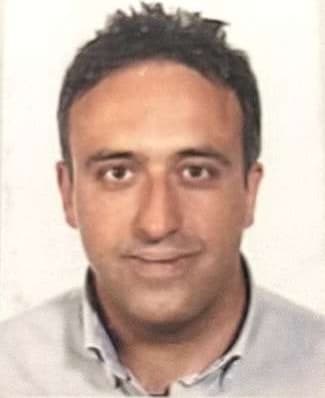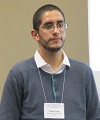Studying at the University of Verona
Here you can find information on the organisational aspects of the Programme, lecture timetables, learning activities and useful contact details for your time at the University, from enrolment to graduation.
Academic calendar
The academic calendar shows the deadlines and scheduled events that are relevant to students, teaching and technical-administrative staff of the University. Public holidays and University closures are also indicated. The academic year normally begins on 1 October each year and ends on 30 September of the following year.
Course calendar
The Academic Calendar sets out the degree programme lecture and exam timetables, as well as the relevant university closure dates..
| Period | From | To |
|---|---|---|
| Annuale (Lingue e letterature straniere) | Sep 28, 2020 | May 29, 2021 |
| I semestre (Lingue e letterature straniere) | Sep 28, 2020 | Jan 9, 2021 |
| II semestre (Lingue e letterature straniere) | Feb 15, 2021 | May 29, 2021 |
| Session | From | To |
|---|---|---|
| ESAMI LINGUE - sessione invernale | Jan 11, 2021 | Feb 13, 2021 |
| ESAMI LINGUE - sessione estiva | May 31, 2021 | Jul 24, 2021 |
| ESAMI LINGUE - sessione autunnale | Aug 30, 2021 | Sep 25, 2021 |
| Session | From | To |
|---|---|---|
| LAUREE LINGUE - sessione autunnale (a.a. 2019/20) | Nov 2, 2020 | Nov 7, 2020 |
| LAUREE LINGUE - sessione straordinaria (a.a. 2019/20) | Apr 7, 2021 | Apr 13, 2021 |
| LAUREE LINGUE - sessione estiva (a.a. 2020/21) | Jul 5, 2021 | Jul 10, 2021 |
| Period | From | To |
|---|---|---|
| Festa di Ognissanti | Nov 1, 2020 | Nov 1, 2020 |
| Festa dell'Immacolata | Dec 8, 2020 | Dec 8, 2020 |
| Festa della liberazione | Apr 25, 2021 | Apr 25, 2021 |
| Festa del lavoro | May 1, 2021 | May 1, 2021 |
| Festa del Santo Patrono | May 21, 2021 | May 21, 2021 |
| Festa della Repubblica | Jun 2, 2021 | Jun 2, 2021 |
Exam calendar
Exam dates and rounds are managed by the relevant Foreign Languages and Literatures Teaching and Student Services Unit.
To view all the exam sessions available, please use the Exam dashboard on ESSE3.
If you forgot your login details or have problems logging in, please contact the relevant IT HelpDesk, or check the login details recovery web page.
Should you have any doubts or questions, please check the Enrollment FAQs
Academic staff
 daniele.caccin2@unibo.it
daniele.caccin2@unibo.it
 silvia.cavalieri@univr.it
silvia.cavalieri@univr.it
 piero.costaleon@univr.it
piero.costaleon@univr.it
 elisa.dallarosa@univr.it
elisa.dallarosa@univr.it
 wenwen.huang@univr.it
wenwen.huang@univr.it
 neliana.orlandi@univr.it
neliana.orlandi@univr.it
 sara.paolini@univr.it
sara.paolini@univr.it
 elena.rango@univr.it
elena.rango@univr.it
 cecilia.sideri@univr.it
cecilia.sideri@univr.it
 tania.triberio@univr.it
tania.triberio@univr.it
Study Plan
The Study Plan includes all modules, teaching and learning activities that each student will need to undertake during their time at the University.
Please select your Study Plan based on your enrollment year.
1° Year
| Modules | Credits | TAF | SSD |
|---|
German literature and culture 1
German literature and culture 1
2° Year activated in the A.Y. 2021/2022
| Modules | Credits | TAF | SSD |
|---|
Anglophone literatures and cultures
English literature and culture 2
French literature and culture 2
German literature and culture 2
Spanish literature and culture 2
Anglophone literatures and cultures
English literature and culture 2
French literature and culture 2
German literature and culture 2
Spanish literature and culture 2
Italian literature and culture
Geography of communication and international trade
Modern and Contemporary Economic History
Theory and Techniques of communication
3° Year activated in the A.Y. 2022/2023
| Modules | Credits | TAF | SSD |
|---|
Comparative and European Public law
Principles of international marketing
| Modules | Credits | TAF | SSD |
|---|
German literature and culture 1
German literature and culture 1
| Modules | Credits | TAF | SSD |
|---|
Anglophone literatures and cultures
English literature and culture 2
French literature and culture 2
German literature and culture 2
Spanish literature and culture 2
Anglophone literatures and cultures
English literature and culture 2
French literature and culture 2
German literature and culture 2
Spanish literature and culture 2
Italian literature and culture
Geography of communication and international trade
Modern and Contemporary Economic History
Theory and Techniques of communication
| Modules | Credits | TAF | SSD |
|---|
Comparative and European Public law
Principles of international marketing
| Modules | Credits | TAF | SSD |
|---|
Legend | Type of training activity (TTA)
TAF (Type of Educational Activity) All courses and activities are classified into different types of educational activities, indicated by a letter.
Comparative and European Public law [Cognomi M-Z] (2022/2023)
Teaching code
4S002938
Academic staff
Coordinator
Credits
9
Language
Italian
Scientific Disciplinary Sector (SSD)
IUS/21 - COMPARATIVE PUBLIC LAW
Period
I semestre (Lingue e letterature straniere) dal Sep 26, 2022 al Dec 23, 2022.
Learning objectives
The course explains the functioning of the main instruments of public law and EU law in a comparative perspective. It provides information on the different legal traditions of the world, on their influence on constitutional structures, as well as on the regulation of economic activities through the lens of the comparative methodology. The course provides students with skills such as understanding, assessing and processing the regulatory framework in which they will operate in their professional trajectory. The comparative analysis of phenomena helps understand global trends and design better solutions for specific (legal) problems.
Prerequisites and basic notions
There are no specific prerequisites.
Program
The course provides the student with the necessary tools for understanding the legal phenomenon, focusing in particular on the most relevant institutions of public and constitutional law of state and European Union systems.
The first part of the course is devoted to an introduction to the legal phenomenon; to the basics of public law; to the method in legal comparison; to legal families and traditions; to the sources of law.
The second part of the course focuses on constitutions and constitutional cycles; on the dynamics of constitutions, with particular reference to their formation and possible revision; on the forms of state and government; on territorial organization of power; on the foundations of European Union law (institutions and sources).
The third part focuses on constitutional justice, with particular regard to its classification into models and systems, as well as its relationship to the phenomenon of law production within the legal systems analyzed in Part One.
Bibliography
Didactic methods
The teaching methods are distinguished between attending and non-attending students.
ATTENDING students:
Teaching consists of face-to-face lectures dedicated to conveying the basics of comparative and European public law, their basic categories and fundamental application tools. This is complemented by in-depth classroom exercises useful for the implementation of theoretical knowledge.
The program can be prepared on the following materials:
a) notes from lectures and materials made available by the Professor in the e-learning platform;
b) S. Bagni, M. Nicolini, "Giustizia costituzionale comparata", Wolters Kluwer-CEDAM, Milano, 2021 (Chh. I and II).
NON-ATTENDING Students:
The teaching methods consist of the Professor's support of up-to-date textbook study.
Specifically, students are required to bring the following syllabus to the examination:
a) L. Pegoraro, A. Rinella, "Sistemi costituzionali", Giappichelli, Torino, 2020 (excluding Chh. VI and IX);
b) S. Bagni, M. Nicolini, "Giustizia costituzionale comparata", Wolters Kluwer-CEDAM, Milano, 2021 (Chh. I and II);
c) R. Adam, A. Tizzano, "Lineamenti di diritto dell’Unione europea", Giappichelli, 2019 (limited to Part One).
ERASMUS students:
Students are invited to contact the Professor (enrico.andreoli@univr.it) for the precise definition of teaching arrangements.
Dual teaching is not provided: classes are exclusively in-person.
In case of certified Covid-19 positivity, students are invited to contact the Professor (enrico.andreoli@univr.it) to discuss possible ways to make up missed classes.
Learning assessment procedures
The assessment of learning outcomes includes:
a) for ATTENDING students: written test; a self-assessment test will be scheduled at the middle of the course;
b) for NON-ATTENDING students: oral test.
The tests for attending and non-attending students cover the respectively specified examination syllabus.
The written test, reserved for ATTENDING students, contains multiple-choice and open-ended questions and concerns the topics covered in class.
The oral test for NON-ATTENDING students covers the books indicated in the program for the same dedicated students.
ERASMUS students are invited to contact the Professor (enrico.andreoli@univr.it) for the precise definition of the examination arrangements.
Evaluation criteria
Each examination is intended to test:
a) the depth and breadth of knowledge gained;
b) the property of language;
c) the ability to connect knowledge in a systemic form;
d) analytical and argumentative ability.
Each test (written or oral) concludes with a proposed grade expressed in thirtieths.
The final grade is made up on the basis of the verification of the criteria mentioned (approximately 1/4 for each criterion). For ATTENDING students, active participation in lectures is also taken into account.
Exam language
Italiano. Gli studenti ERASMUS possono contattare il Docente per valutare la possibilità di utilizzare una lingua diversa.
Type D and Type F activities
To discover all the teaching activities accredited by the foreign teaching college click here
Career prospects
Module/Programme news
News for students
There you will find information, resources and services useful during your time at the University (Student’s exam record, your study plan on ESSE3, Distance Learning courses, university email account, office forms, administrative procedures, etc.). You can log into MyUnivr with your GIA login details: only in this way will you be able to receive notification of all the notices from your teachers and your secretariat via email and soon also via the Univr app.
Student login and resources
Gestione carriere
Assegnazione tutore
Attività accreditate D/F
Calendario didattico dettagliato
Cambio lingua curriculare
Competenze informatiche
Competenze linguistiche (prima e seconda lingua)
Competenze linguistiche in triennale (terza lingua CFU F)
Compilazione del piano didattico
Corso di Lingua portoghese
Erasmus+ e altre esperienze all'estero
Linguistic training CLA
Presentazione dei corsi di studio e Open day
Graduation
List of theses and work experience proposals
| Stage | Research area |
|---|---|
| PROGETTO MAMBRINO Stage per bibliografia | Various topics |
Saperi minimi
Stage e tirocini
Nel piano didattico della laurea triennale in Lingue per il turismo e il commercio internazionale (L12) è previsto un periodo di stage obbligatorio (CFU 6) in organizzazioni imprenditoriali.
Le attività di stage sono finalizzate a far acquisire allo studente una conoscenza diretta in settori di particolare interesse per l’inserimento nel mondo del lavoro e per l’acquisizione di abilità professionali specifiche.
Le attività di stage sono svolte sotto la diretta responsabilità di un singolo docente presso studi professionali, enti della pubblica amministrazione, aziende accreditate dall’Ateneo veronese.
I crediti maturati in seguito ad attività di stage saranno attribuiti secondo quanto disposto nel dettaglio dal “Regolamento d’Ateneo per il riconoscimento dei crediti maturati negli stage universitari” vigente.
- Tutte le informazioni in merito agli stage per futuri studenti sono disponibili alla pagina Stage e tirocini.
- Tutte le informazioni in merito agli stage per studenti iscritti sono pubblicate in MyUnivr - come fare per - stage e tirocini.
- Tutte le informazioni in merito agli stage per le aziende sono disponili alla pagina Stage e tirocini per azienze.
Ulteriori informazioni al seguente link https://www.univr.it/it/i-nostri-servizi/gestione-carriere-studenti-lingue-e-letterature-straniere/stage-e-tirocini-lingue-e-letterature-straniere

 +39 045802 8409
+39 045802 8409























































